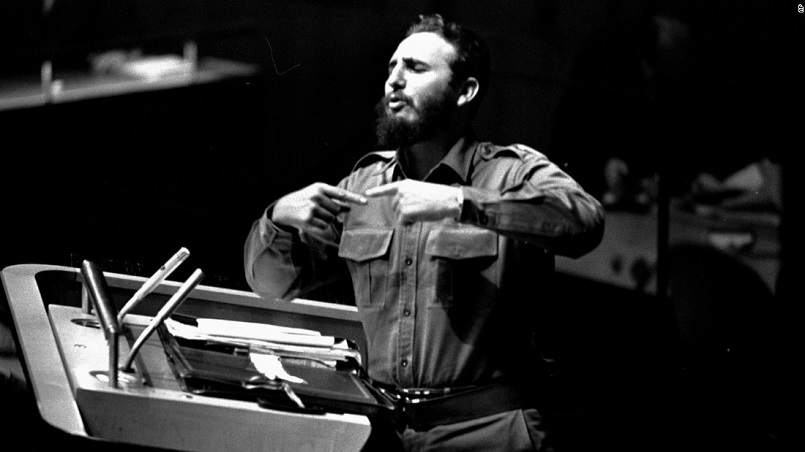
When Cuban revolutionary leader Fidel Castro's death was announced on Saturday, China's President Xi Jinping remembered him as a "great person of our era."
In a statement read out by a presenter on Chinese state-TV, Xi praised the founder of Communist Cuba. He said Castro had made "immortal historical achievements for the development of world socialism."
But decades earlier, Fidel Castro himself didn't have such praise for the founder of Communist China.
"I believe that Mao (Zedong) destroyed with his feet what he did with his head for many years. I'm convinced of that. And some day the Chinese people, the Communist party of China will have to recognize that," Castro told American journalist Barbara Walters in May 1977.
He went on to list what he said were Mao's grave mistakes: a cult personality and abuse of great power.
"I also acquired that power, but I never abused it, nor did I retain it in my hands," Castro said.
China and Cuba: Communists on opposite sides of the Cold War
Although both Cuba and China were functioning Communist states, Castro told Walters he viewed China as a "good ally" of the US, which was a bitter enemy of Cuba.
It was the height of the Cold War -- and Cuba and China found themselves seemingly on opposite sides: Cuba a strong ally of the Soviet Union, while China had split with the Soviets over their different interpretations of Marxism-Leninism. China was also slowly establishing ties with the US and was about to embark on major economic reform.
"China's working closely with the US played a big role in the fall of the Soviet Union," said Victor Gao, chairman of the China Energy Security Institute, who once worked as an interpreter for former Chinese President Deng Xiaoping.
"I think for Fidel Castro to feel a bit uncomfortable with China separating from the Soviet Union and getting closely involved with the US is fully understandable. He remained until very, very recently, opposed to involvement with the US. Using the Cuban benchmark -- it also made a lot of sense for them to think that China was betraying that ideology."
Havana and Beijing established diplomatic relations in 1960, but their opposing positions in the Cold War resulted in little substantive interaction between the countries for more than two decades, according to Chinese state media. Relations didn't fully resume until 1989, and Castro made his first and only state visit to China in 1995.
By then the Soviet Union had fallen and Cuba, still under a US economic blockade, needed to strengthen ties with other Communist allies. China quickly became one of Cuba's top trade partners and economics was the main focus of Castro's visit to China. He spent two days outside the capital observing economic changes in China, taking note of the successes and weaknesses of economic reform.
The cost of Cuba's defiance against America
It's economic development that differentiates the two communist nations, according to Gao.
"The economic development model based on socialist ideology, now when we look back, was a very misguided ideology," he told CNN. "Since 1978 China embarked on profound economic reform and today has become the world's second largest economy. Cuba throughout these years has not changed that profoundly."
But despite the differences, Gao said China remained loyal to its fellow Communist nation, recalling a meeting between Deng Xiaoping and then U.S. Secretary of State George Shultz in 1987, where Gao served as interpreter.
"He lobbied very hard for China to stand by the US in regards to Cuba and its blockade, but Deng Xiaoping reiterated that China would not do that," Gao said.
"I think it's truly remarkable for a small country like Cuba, just on the doorstep of the US, managed to really stand firm in what it believed to be the truth. That is truly an act of bravery and courage, even though the cost is to be on the lower level of economic development."
China awarded Fidel Castro the Confucius Peace Prize -- its own version of the Nobel Peace Prize in 2014, saying Castro did not use force in dealing with international disputes, especially against he US.
But Castro's unwillingness for decades to implement economic reforms will also serve as a lesson for many Chinese, Gao said.
"While Fidel Castro was a great political leader, he was not a great economic leader. Hopefully his passing will make it easier for the next generation to implement reforms and improve its economy."
